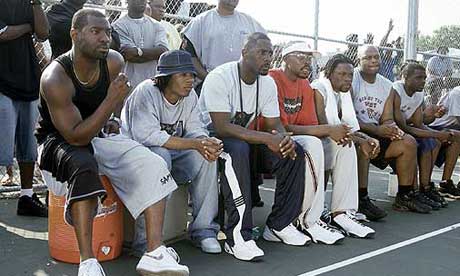
I had the great good luck to interview David Simon - co-creator of The Wire, co-author of Homicide and The Corner - the other day, ahead of his appearance at the Guardian Hay festival on 30 May. One of the nuggets that I couldn't quite squeeze into the resultant article was the influence of Greek tragedy on his wonderful TV series (the antidote to police procedurals, as you might call it).
It won't ruin the show for non-initiates: but The Wire's characters tend to be powerless in all kinds of crucial ways, hampered from full freedom of will and action by anything from an inflexible and corrupt police bureaucracy to endemic poverty and lack of aspiration. They are trapped in their circumstances, and the narrative offers them little chance for redemption or escape. This conception of his characters - locked in destinies that they cannot escape - chimed with Simon's interpretation of Greek tragedy, in which he sees characters as just as trapped - by the will of gods rather than by the unseeing inflexibility of institutions.
"Greek tragedy became one of the influences in terms of the tone and intent ... a framework for what we were doing with The Wire."
He added that ancient Greek cosmology "doesn't seem to speak to us as postmoderns - we barely believe in a monotheistic deity leave alone a pantheon of gods who are capricious, jealous and venal.
"We want to believe that we are in control of our lives. But when we started looking at where America was headed politically and economically, and Greek tragedy started making a lot of sense.
"It's not like we decided to put Medea here, Antigone there, but the tone and temperament of Greek tragedy seemed suited to the moment."
And that, it seems plausible to suggest, is why the big baddie of series two is simply known as "the Greek".

